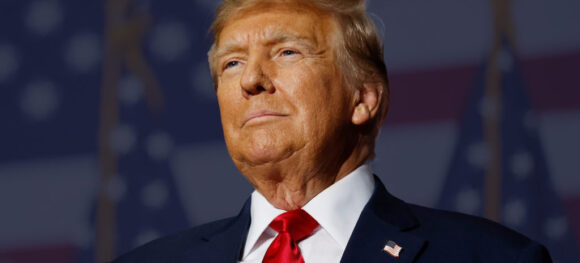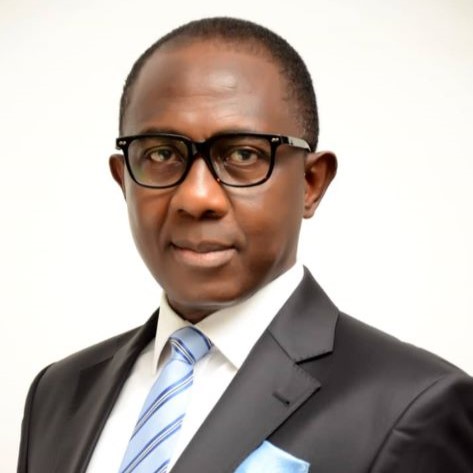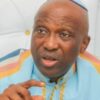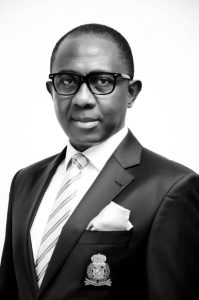Weaponised Faith: Disinformation and the Battle for Nigeria’s Digital Sovereignty

As much as possible, I avoid arguments focusing on the military viability of a threat, and this article is not intended to interrogate the geopolitical implications of a potential U.S. intervention in Nigeria. Those kinds of inquiries, as necessary as they are, sometimes miss the far more profound and insidious disruption of military interventions such as the one we are seeing in our digital space.
Unless we fool ourselves, the true cost of the threat of military intervention made by U.S. President Donald Trump on October 31st should not be measured in troop movements or diplomatic cables. To understand the damage even before the first bullets are fired, we should think of the immediate, structural destabilisation of Nigeria’s information order and the systemic fracturing of its digital public space.
The unexpected redesignation of Nigeria as a “Country of Particular Concern” (CPC) for what Trump described as genocide targeting Christians; followed the next day by the inflammatory social media post promising to go into the country “guns-a-blazing,” is probably tactical. Typical of the American President, It looks every inch like a well-targeted display of Digital Coercion designed for maximal attention-economy ROI. I am willing to bet that the choice of words, which invoked the historically resonant term “Department of War” in place of the contemporary Department of Defence, was probably intended to maximise immediate engagement and peak controversy. The rhetoric promised an attack that would be “fast, vicious, and sweet, just like the terrorist thugs attack our CHERISHED Christians.” These are heavy words. Which is why now is an appropriate time to interrogate the political economy of Trump’s rhetoric especially because convergence of high-stakes diplomacy, digital platforms, and African sovereignty is suddenly taking centre-stage.
For us to make sense of the intense, divisive reaction that followed the threat, we must anchor our discussion in the framework of Affective Publics. Nigeria’s digital ecosystem is already characterised as a highly active, yet vulnerable environment, providing as a fertile ground for the rapid spread of misinformation and deep polarisation. The threat’s strategic framing – focusing on saving “CHERISHED Christians” from an “existential threat” – could not have been better designed if it were meant to exploit this vulnerability. Think about it, how else do you sideline any possibility of rigorous, rational political discourse.
The complex, multifaceted reality of insecurity in Nigeria – which involves non-state jihadist insurgency, widespread banditry including kidnapping, and farmer-herder conflicts – is conceptually difficult and slow to understand. Conversely, the sensationalist, emotionally accessible narrative that the US military intervention is aimed at saving Christians may be more-easy to understand but imitates one of those contents tailor-made for viral spread within a polarised digital culture. What this divergent frames have done is to create an acute shortage of meaningful interpretation of what is happening. Nigerian religious leaders and security analysts immediately have jumped in to present a statistical counter-narrative, stressing that terrorist violence, including that perpetrated by groups like Boko Haram and ISWAP, targets both Muslim and Christian populations equally and often indiscriminately. One of the most interesting I have seen is the data from Armed Conflict Location and Event Data (ACLED), which claims only a small fraction of the civilian attacks monitored were primarily motivated by religious conflict. The fact that Christians communities in Plateau, Benue and Southern Zaria have suffered what looks like sustained attacks that force them to flee ancestral lands rubbishes the attempts by social media activists rushing to discredit the figures from America.
The disputed casualty figures in themselves strongly confirm the erosion of rigorous discourse. Were they availably, accurate casualty figures would demand reasoned analysis; whereas as we have seen, the rhetoric demanded instantaneous outrage or enthusiastic support. This hampers rigorous political discourse, the result being the replacement of rational policy debates with emotional, senseless antagonisms.
We have seen this before. Digital activism often relies on Connective Action – rapid, shared emotional responses. While effective for instant mobilisation, connective action are limited, historical evidence showing it is often ineffective at sustaining long-term, rigorous democratic outcomes. That is in addition to the tendency for it to lead to political instability. The use of maximalist rhetoric in the Nigerian context successfully hijacks the attention of the global digital audience, but it equally makes sustainable political stability more difficult to achieve internally.
The political damage of Trump’s rhetoric won’t be found in the eventual outcome of any military intervention but rather in the disinformation tracks it is helping to build. The divisive and emotionally charged nature of the debate is providing a fertile ground for the swift production and spread of false or misleading content. Again, we are witnesses to the exhibition of the problematic power dynamics of the digital ecosystem, which is designed to profit platform owners and those who master the algorithm. When a major global power deliberately promotes a narrative – such as an “existential threat” – that is statistically too weak to withstand critical scrutiny, the credibility of all domestic information sources, including official statements from the Tinubu government, is fundamentally undermined. This deliberate destabilisation of the information order acts as a successful precursor to generating social and political instability, posing a structural risk to Nigeria’s democratic processes especially ahead of major elections in 2027.
The crisis also exposes a fundamental fracture in Nigeria’s collective digital identity. While many Nigerian social media users vehemently oppose the military threat, viewing it as an affront to national sovereignty and an act of geopolitical opportunism, the deep complexity of Nigeria’s internal conflicts means that elements within the ‘persecuted’ Christian communities or the political opposition appear to be tacitly in support of such a threat. The effect on the fractured public sphere is clear – the threat looks like it has further weakened fault-lines of religious and regional animosities.
Furthermore, Nigerians in the diaspora, whose voices are becoming louder in moderating the contestations from host and home countries, sometimes serve as critical channels for worsening the divisive rhetoric, muddling legitimate concerns over insecurity with complex misinformation. Why, then, should we separate the military threat from the information disorder? Because the proliferation of disinformation and hate speech is not merely a social inconvenience; it constitutes a profound threat to information integrity as a national security issue.
So that we do not miss the point, the digitally-delivered military threat cannot be analysed in isolation; it must be understood as a critical act of competitive statecraft within the overarching global power struggle for influence in Africa involving the United States, China, and Russia. The U.S. Africa policy faces a critical trilemma: attempting to balance its rhetorical commitment to democracy, effectively countering terrorism, and competing strategically with rising global rivals. By opting for high-profile, non-viable, yet strategically coercive political theatre, Trump’s America appears to be showing a profound failure to prioritise sustained, consistent engagement.
Make no mistake, the divisive rhetoric is certain to hand both Russia and China strategic openings. Russia has busied itself with spreading its influence through the state-backed Africa Corps (the rebranded Wagner Group), with provision of counter-insurgency assistance and support for new military juntas across the continent. The American threat of military strikes and suspension of economic aids is certain to strengthen the suspicion that Western relations are politically conditional, capricious, and ultimately unreliable. This will most likely increase the appeal of Russian transactional patronage, which typically does not include the Western-style political or human rights conditions.
On its part, China favours an engagement strategy that secures access to and control of crucial supply chains but cleverly disguised as long-term economic investment and partnership. So, while America was riling Nigeria and heating up the communicative space of a strategically vital economy, China’s reaction was to publicly position itself as a more reliable ally; and stable partner that respects the sovereignty of other nations.
The core utility of the non-viable military threat was therefore concentrated in the digital domain. By making such a serious threat via social media, Trump appears to be testing Nigeria’s capacity to deal with maximum digital pressure; again, showing his preference for using digital platforms for high-level diplomatic brinkmanship. It looks like the American president believes that instantaneous, high-stakes rhetoric is able to produce coercive diplomatic goals without the commitment of physical mobilisation.
The incident demonstrates the emergence of a highly effective model of low-cost, high-impact digital strategic coercion. The success of the coercive effort rested on a three-layered strategy: first, harnessing U.S. domestic identity politics; second, exerting diplomatic leverage against Nigeria via the CPC designation and the threat of aid withdrawal; and third, strategically exploiting Nigeria’s pre-existing digital vulnerabilities to polarisation and misinformation. The result was an immediate, structural destabilisation of Nigeria’s fractured information order and diplomatic standing.
The greatest casualty, however, is not a diplomatic relationship but the fundamental information integrity of a sovereign nation. The unsettling nature of the U.S. approach appears to confirm the long-held suspicion that its relations with African nations is too politically conditional to be reliable. It baffles that the country fails to see that this is damaging its soft power and in the process straightening rival powers, who amplify the narrative that America is hypocritical and self-interested.
This case confirms what we have always feared. That Nigeria is vulnerable because it does not control its own narrative especially around the complex security crisis. Herein is the lesson for African nations: design robust resilience against external digital influence that often polarises your communicative environments or continue to be at the mercy of insidious campaigns such as the one Nigeria is experiencing. It looks like the sensible approach for countries like Nigeria is to strengthen the capabilities for fighting disinformation. The basis for this would be to see the integrity of the information system as non-negotiable, and promoting evidence-based political discourse as a way of countering manipulative, polarising rhetoric. Unless this is done urgently, there is a risk that national discourse will continue to be hostage to demands of the global attention economy.












